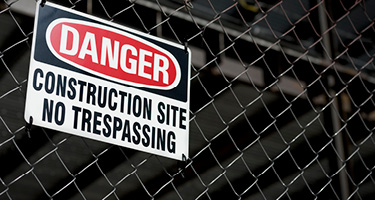The real estate industry plays a critical role in the economy, contributing to job creation, infrastructure development, and economic growth. Real estate transactions in the residential sector, in particular, are an essential component of the industry, enabling individuals and families to purchase, sell or rent homes.
However, residential real estate transactions can be complicated and intimidating, particularly for first-time buyers or sellers. This is an overview of the stages of a real estate transaction, parties involved and the role of lawyers in the process.
What Are Two Parties common To Real Estate Transactions?
The two parties common to real estate transactions are the buyer and seller. The buyer is the individual or entity purchasing the property, and the seller is the individual or entity selling the property. Both parties must agree on the terms of the transaction, including the purchase price, closing date and other conditions.
Real estate agents and other real estate professionals are also common in real estate transactions. They assist buyers and sellers with listing or searching for properties, negotiating offers and preparing the necessary documentation for the transaction.
What Are the Stages of a Real Estate Transaction?
The components of a residential real estate transaction typically include the following stages::
- Pre-listing or Pre-purchase stage: At this stage, the buyer or seller identifies a real estate agent, conducts market research and identifies their preferred location, type of property and budget. They will typically work with a lender, discussing mortgage and interest rates.
- Listing or Searching stage: The property is listed for sale, and potential buyers search for suitable properties. Buyers can attend open houses or schedule private tours of the property.
- Offer and Acceptance stage: The buyer submits a purchase offer, and the seller either accepts, rejects or counters the offer. The purchase price may or may not include closing costs, and the buyer could ask for a home inspection. This stage involves negotiation and could take several rounds until both parties agree on the price and other terms of the transaction.
- Escrow stage: At this stage, the buyer and seller sign a purchase agreement, and the buyer deposits an earnest money deposit, which is typically 1-5% of the purchase price, to show their commitment to the transaction. The seller takes the property off the market and prepares to transfer ownership to the buyer.
- Closing stage: This is the final stage of the transaction, where the buyer and seller meet with their respective attorneys and finalize the transaction. The buyer pays the remaining purchase price, and the seller transfers ownership of the property.
Who Holds the money in a Real Estate Transaction?
In a real estate transaction process, the money is typically held in an escrow account, which is managed by a neutral third party, such as a title company or an attorney. The escrow account ensures that the buyer's funds are safe and that the seller receives their payment once the transaction is complete.
What Is the United States Residential Real Estate Transaction Volume?
The U.S. residential real estate market is one of the largest in the world, with a transaction volume of over $458 billion in 2020. This volume includes both existing home sales and new home sales, as well as rental transactions. The real estate industry plays a significant role in the U.S. economy, contributing to job creation, infrastructure development and economic growth.
The high transaction volume also reflects the strong demand for housing in the U.S., particularly in urban areas and popular vacation destinations. As the market continues to evolve, buyers and sellers must stay informed about market trends and seek the guidance of experienced professionals to ensure a successful transaction.
How Are Lawyers Involved in Real Estate Transactions?
Lawyers play a critical role in real estate transactions, particularly in ensuring that the transaction complies with applicable laws and regulations. In some states, real estate attorneys are required to be involved in the transaction, while in others, their involvement is optional.
Real estate attorneys assist with the following tasks:
- Reviewing the purchase agreement to ensure that the terms are legal and enforceable.
- Conducting a title search to ensure that the property has a clear title and that there are no liens or encumbrances.
- Preparing and reviewing closing documents, including the deed, bill of sale and closing statement.
- Facilitating communication between the parties, the lender and the title company.
Takeaways
Real estate transactions in the residential sector can be complex and involve multiple stages, parties and legal requirements. It is essential for buyers and sellers to work with experienced professionals, such as real estate agents and attorneys, to ensure that the transaction is legal, ethical and fair to all parties involved.
It is also crucial for buyers and sellers to conduct their due diligence before entering into a transaction. This includes researching the property, market conditions and financing options to ensure that they are making an informed decision. Working with a reputable real estate agent can also help buyers and sellers navigate the complexities of the transaction and avoid potential pitfalls.
In summary, real estate transactions in the residential sector are a vital aspect of the economy, enabling individuals and families to buy, sell or rent homes. By understanding the stages of a real estate transaction, the parties involved and the role of lawyers, buyers and sellers can navigate the process successfully and achieve their goals.

































